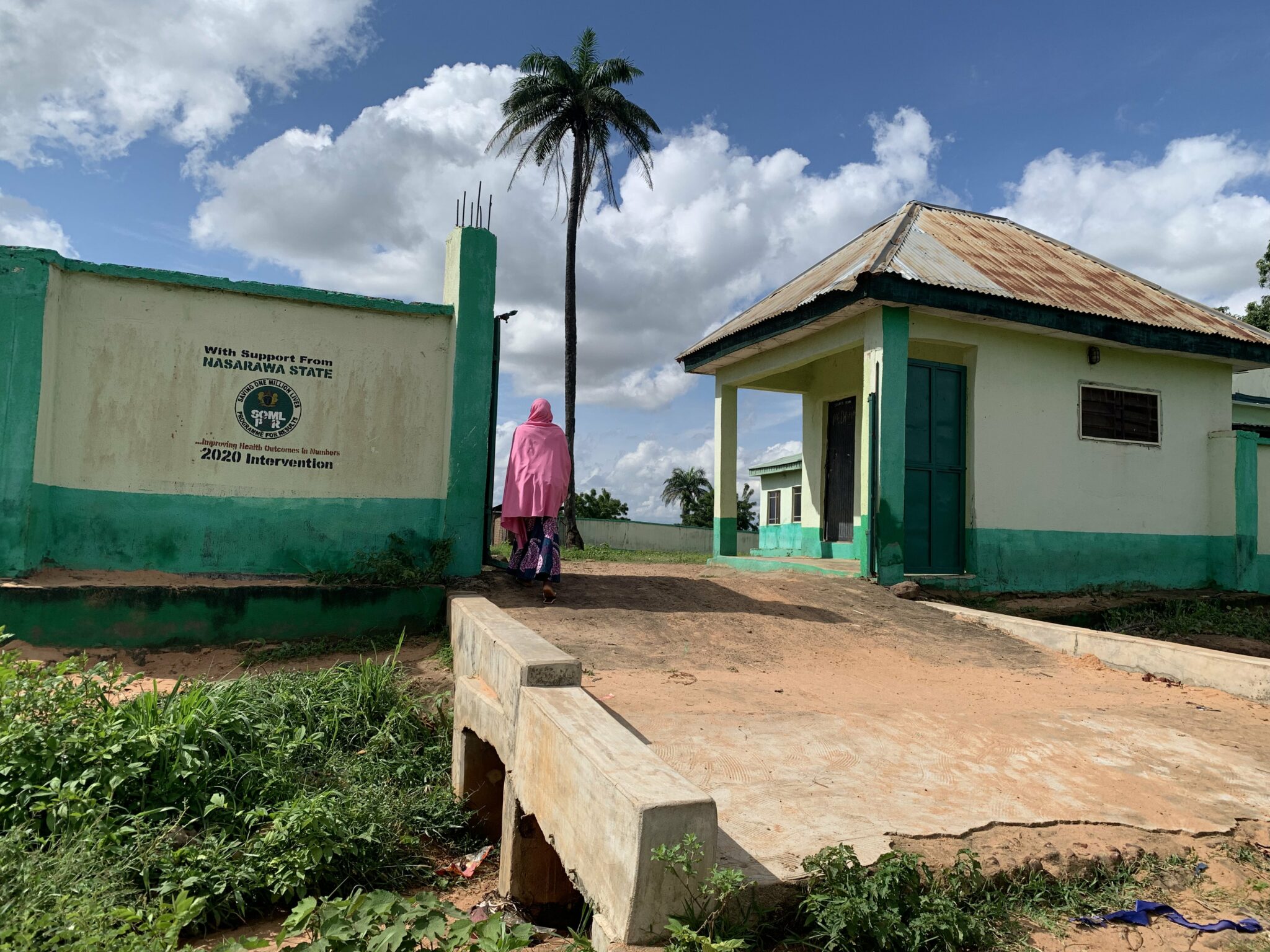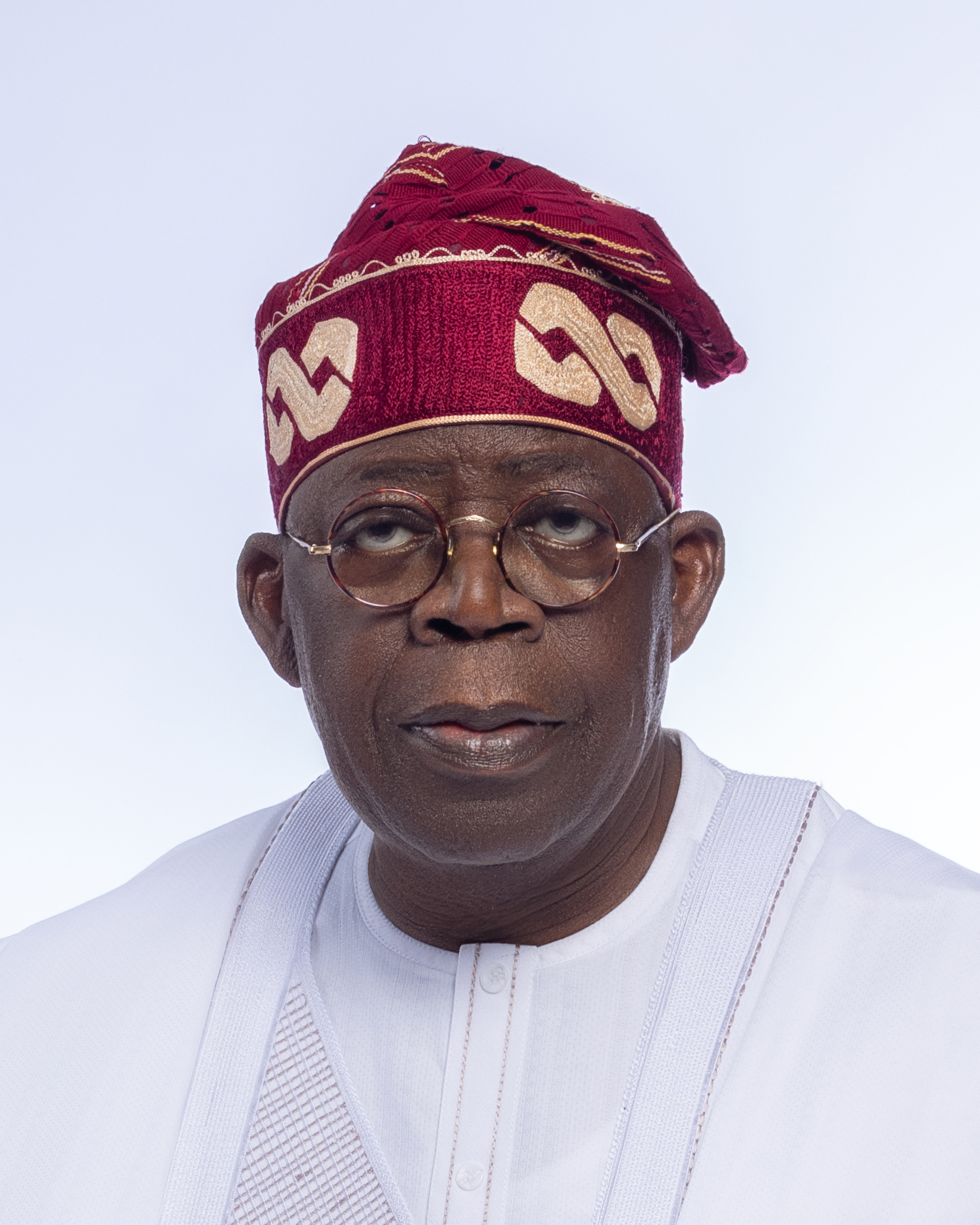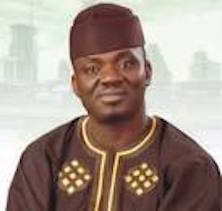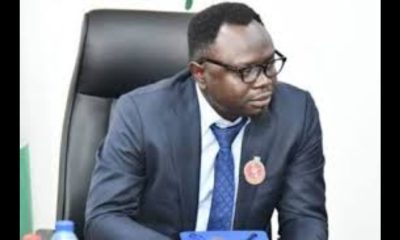FEATURES
How Pro-poor Health Model is Driving Access to Medicare in Nasarawa Grassroots

By Hamisu Sanusi
When Nasarawa State Governor, Engineer Abdullahi Sule, flagged off the Medical Outreach programme, an initiative to take preventive, curative and promotive healthcare to the doorsteps of urban poor and underserved villagers, little did he know that the gesture would gain acceptability and momentum that currently trails it.
At the flag off ceremony, Governor Sule said that the Medical Outreach, organised in conjunction with the Doctors on the Move Africa (DOTMA), as part of activities marking the 25th anniversary of the creation of the state, and the Health Insurance Scheme, were in line with the policy drive of his administration towards alleviating the plight of the common people.
Barely over a year after the simple ceremony at the Dalhatu Araf Specialist Hospital (DASH), Lafia, targeting 6,000 patients, the initiative has become a major primary healthcare provider, drawing accolades from health experts across the country and serving as a model to the country’s health policy formulators and funding partners.
The Medical Outreach and the Health Insurance Scheme are now driving access to medicare at the grassroots in the state, including the hitherto hard-to-reach areas.
According to the state’s policy makers, the primary objective of the programmes are to ensure equal access to medical services by all citizens of the state and residents irrespective of location and socio-economic standards, with the most vulnerable, women and children as the focus groups.
The Medical Outreach has provided free drugs; gynaecology and eye operations; ultra sound scan; lab tests, prescription glasses; among other interventions.
At the Dalhatu Araf event, the governor specifically took interest in Esther Donatus who had lived with a growth in her womb for 18 years because she had no money for surgery. She became one of the first beneficiaries and a testimony of the programme which has revived hope among the poor and indigents.
The programme has continued nonstop with encouraging results in reduction of maternal and infant mortality rates and other health challenges.
The state’s Ministry of Health’s statistics shows that more than 20,000 patients across 10 out of the 13 local government areas of the state have been treated of different ailments since the programme commenced, with about 2,000 surgeries performed successfully.
In continuation of the scheme, doctors and other health professionals will be moving to Karu LGA in the coming days, while Keffi and Kokona will be the last local government areas to be covered.
Similarly, the Health Insurance Scheme has given the poor and indigents the opportunity to access free medical care across health facilities in the state.
The programme came on stream with the flag off of the Nasarawa State Health Insurance Equity Programme for the Vulnerable by Governor Sule in December, 2020.
At the launch of the scheme, Governor Sule, who noted that it was, “Very dear to my heart”, announced that as part of the enabling law establishing the scheme, 0.5 per cent of the consolidated revenue of the state was set aside as equity fund to cover the healthcare needs of the vulnerable.
The gesture is one of the social safety nets programme of the administration to provide basic minimum package of health services to the poor and vulnerable.
In February, 2021, the governor flagged off the main scheme with the distribution of 1,200 identity cards to some beneficiaries. The scheme captures those in the formal and informal sectors. The scheme also foots the bills of orphans and almajirai.
About eight months after the flag off, over 50,000 persons have been enrolled, the Executive Secretary of the Nasarawa State Health Insurance Agency (NASHIA), Dr Gaza Gwamna, disclosed.
The figure, however, does not include the state’s employees and pensioners who were not initially captured due to a delay in commencing deduction from their salaries and entitlements to fund the programme.
By the time the civil servants and pensioners fully embraced the programme, the figure quadrupled, with the scheme becoming a model which some state governments draw inspiration from.
Dr Gwamna said that not all those in the informal sector who were enrolled had their premium paid directly.
He explained that, “We have some of them whose premium was paid by the federal government, while others had theirs paid by the state government; which is complementing the effort of the federal government.
“Then we have some of the enrollees whose premium has been paid by Non-Governmental Organisations (NGOs).”
Apart from the medical outreach and health insurance scheme, the administration has also made significant impact in providing quality healthcare services to the people through the Saving One Million Lives programme.
Saving One Million Lives, which was initiated by the federal government and domesticated by Governor Sule, has expanded access to essential primary healthcare services for women and children.
At a public health forum some months ago, Governor Sule explained that, “This initiative is an evidence-based and cost-effective intervention to address the leading causes of morbidity and mortality in the country.
“Since the domestication of the programme, we have made significant strides which facilitated the renovation of 67 Primary Healthcare Centres (PHCs) and 11 general hospitals across the state.”
Such rare pro-poor initiatives are what stands Nassarawa out among its peers in the country and endeared the present administration to the hearts of the masses in the state.
FEATURES
Why Genotype Compatibility Matters in Preventing Sickle Cell

Sickle Cell Disease (SCD) is a genetic blood disorder that arises when both parents carry the sickle cell gene, creating a 25 per cent chance of transmitting the disease to their offspring with each pregnancy.
Globally, an estimated 400,000 babies are born annually with SCD.
Medical experts have consistently warned that genotype incompatibility remains the leading cause of new cases and should be a central consideration among intending couples.
According to them, avoiding unions between carriers, especially those with AS and SS genotypes could greatly reduce new incidences, limiting them to carriers alone.
In high-income countries, the average life expectancy for individuals living with SCD is approximately 57 years.
However, the outlook is more severe in Sub-Saharan Africa, where 50 to 80 per cent of children born with the disease die before the age of five.
In contrast, babies born with SCD in the United States have a 95 per cent chance of reaching adulthood.
Given these disparities, experts are unanimous that prevention is the most effective and affordable strategy for eliminating the disease.
Prof. Titus Ibekwe, Provost of the College of Health Sciences, University of Abuja, underscored this view during a recent public lecture in Abuja.
It was titled “The Evolving Therapeutic Landscape in Sickle Cell Disease”.
He emphasised the importance of proactive partner selection based on genotype compatibility.
“Prevention is key in the fight against sickle cell, and this costs nothing.
“It simply means paying close attention when choosing a life partner ensuring that individuals with the AS genotype do not marry another AS.
It is also that an AS does not marry an SS, or two SS individuals do not marry”.
Ibekwe explained that such unions greatly increase the risk of having children with SCD, and that sustained adherence to genotype-based partner selection could drastically reduce, if not eliminate, the disease burden.
Beyond prevention, Ibekwe noted that treatment options for individuals living with the disease have expanded, including advanced therapies such as bone marrow transplantation and gene therapy.
He explained that gene therapy aims to correct the faulty gene responsible for the disease, allowing it to function like a healthy one.
Also speaking on the burden of SCD in Nigeria is Dr Maureen Achebe, Clinical Director of Haematology at Harvard’s Brigham and Women’s Hospital and Associate Professor of Medicine at Harvard Medical School.
She disclosed that Nigeria bears the highest global burden of the disease.
“Every year, 300,000 babies are born with SCD in Sub-Saharan Africa, and 150,000 of them are born in Nigeria alone,” she said.
Achebe outlined this as a major public health concern and warned that, with Nigeria’s high fertility rate, the number is expected to rise greatly by 2030.
She advocated for newborn screening to detect SCD before symptoms begin, noting that babies appear normal at birth but benefit greatly from early diagnosis and care.
“Without early identification and intervention, infants will continue to die of undiagnosed anaemia, pneumococcal sepsis, or severe malaria,” she said.
Achebe noted that the sickle cell trait historically evolved as a natural protection against malaria.
According to her, individuals who carry one sickle cell gene (AS genotype) are less likely to die from severe malaria compared to those without the gene (AA genotype).
“However, those with full-blown SCD suffer from chronic complications, reduced quality of life, poor educational and professional outcomes, and premature mortality,” she said.
Additionally, she emphasised the importance of preventive strategies, urging the use of vaccinations, daily folic acid supplements, and proactive infection control.
She also recommended hydroxyurea as a proven daily treatment that improves survival rates and reduces the severity of symptoms.
While she recognised the promise of gene therapy and bone marrow transplantation, she pointed out their high costs, limited accessibility, and the fact that children under 12 tend to respond better to these treatments.
Achebe clarified that while gene therapy treats the symptoms and effects of the disease, it does not eliminate the sickle cell gene from the patient’s reproductive cells, meaning affected individuals can still pass it to their children.
She warned that the total economic toll of SCD in Sub-Saharan Africa currently stands at over $9.1 billion annually, projected to rise to $10 billion by 2030.
“Tackling SCD requires strong financial and political will to scale up newborn screening and ensure nationwide access to care,” she said.
Achebe further stressed the need for public awareness, early diagnosis, and cultural education to dispel myths surrounding the disease.
“Sickle Cell Disease is a scientifically inherited condition, not caused by witchcraft,” she affirmed.
In the same vein, Prof. Obiageli Nnodu, Director of the Centre of Excellence for Sickle Cell Disease Research and Training (CESRTA), University of Abuja, highlighted the importance of continued research and capacity building.
She explained that CESRTA, established in 2015, has made major progress in clinical and translational research to bridge treatment gaps in Nigeria and beyond.
“Our centre provides platforms for skills development and engages in strategic collaborations with local and international institutions to improve care outcomes,” she said.
Following the 5th Global Congress on Sickle Cell Disease, the centre was upgraded to the National Centre of Excellence for SCD Research.
This is a major milestone in Nigeria’s efforts to combat the disease.
As the world marks World Sickle Cell Day on June 19, experts are calling for a renewed push toward genotype awareness, partner compatibility, and universal newborn screening as critical tools in the fight to eliminate SCD. (NANFeatures)
FEATURES
Tinubu’s Bold Development Agenda: Putting Youth First

In a bold step to equip young Nigerians with the skills, knowledge, and opportunities needed to thrive, President Bola Tinubu, in 2023, established the Ministry of Youth Development.
The ministry was officially separated from the Ministry of Sports Development on Aug.
17 of that year.The move, a key part of the president’s Renewed Hope Agenda, signaled a renewed national focus on youth empowerment.
At the helm is Minister Ayodele Olawande, who has since driven a series of reforms and initiatives aimed at unlocking the vast potential of Nigeria’s young population.
Over the past two years, the ministry has focused on nurturing the social, emotional, cognitive, and economic capacities of young Nigerians through a variety of programmes and partnerships.
One of its flagship efforts is the National Youth Investment Fund (NYIF), a N110 billion initiative designed to fuel entrepreneurship and innovation among youth-led businesses.
Building on this, the government also inaugurated the Youth Development Bank, a pioneering financial institution with a N10 billion take-off capital aimed at providing tailored financial solutions to young entrepreneurs.
The ministry’s commitment to capacity building is also evident in the Skills Development and Entrepreneurship Programme, which includes the well-known N-Power scheme.
Under this, 500,000 graduates have been trained and engaged nationwide in various vocational and digital skills.
Additionally, the Graduate Internship Scheme (GIS) was introduced to provide 5,000 young Nigerians with internship placements in public and private sector organisations, while efforts to rehabilitate Youth Development Centres continue across the country.
Olawande revealed plans to transform these centres into innovation hubs that will focus on technical, digital, creative, and civic engagement.
In pursuit of deeper impact, the Ministry of Youth Development has formed strategic alliances with both local and international stakeholders.
One notable partnership is a Memorandum of Understanding (MoU) with Investonaire Academy, aimed at training 100,000 young Nigerians annually in foreign exchange (Forex) trading.
“A capacity-building workshop on digital transformation and artificial intelligence, organised in collaboration with UNESCO.
“MoU with RHO Sigma & Sons Limited to produce a youth-focused reality show, Teenage Talent Hunt, aimed at promoting talent in music, dance, visual arts, and innovation.”
According to Olawande, the show will serve as a platform for entertainment, education, and skills enhancement, showcasing Nigeria’s emerging talents while reinforcing the ministry’s goal of empowering the next generation.
In a collaborative venture with the Bank of Industry and development partners, the ministry launched NextGen Bank, a youth-focused development finance institution.
It offers grants, low-interest loans, and equity investments to scale youth-led ventures in critical sectors like agriculture, renewable energy, ICT, healthcare, and education.
The ministry also introduced Youth Villages, sustainable physical and virtual communities in partnership with states such as Niger, Katsina, and Ebonyi.
These communities are designed to support economic development based on regional strengths and will serve as multifunctional hubs for entrepreneurship, civic engagement, and innovation.
Recognising financial challenges as a barrier to education, the ministry played a key role in rolling out an interest-free student loan scheme.
The initiative is designed to prevent dropouts from tertiary institutions due to economic hardship.
Before the end of the year, the ministry is set to host a National Youth Confab, where equality and inclusivity will be at the heart of discussions.
Olawande stressed the need for diverse representation and equity in policymaking, saying: “The selection of representatives will be based on equality.
“This government is committed to creating a Nigeria where equal opportunities are available to all, regardless of gender, social status, or creed.”
To promote healthy living among youth, the ministry inaugurated YO! Health, a comprehensive health awareness campaign.
The initiative addresses mental, physical, and sexual well-being, targeting common challenges such as substance abuse, mental health neglect, and preventable diseases.
Built on six strategic pillars, mental health, drug and substance abuse, communicable diseases, health insurance for informal workers, non-communicable diseases, and sexual and reproductive health,YO! Health aims to provide access to credible health information.
The initiative also focuses on delivering essential services and fostering community-driven support to improve overall youth well-being.
“Good health is foundational for youth to reach their full potential.
“This initiative promotes preventive healthcare and empowers youth to take charge of their well-being,” the minister said.
As part of its long-term plan, the ministry recently launched the National Youth Development Strategy (2024–2028), alongside initiatives in digital skills training, green entrepreneurship, and multi-sector partnerships.
“Nigerian youth are not just the leaders of tomorrow; they are the changemakers of today.
“We remain committed to building a system where young people have the tools, platforms, and support to shape their future and the nation’s destiny,” Olawande noted.(NANFeatures)
FEATURES
ECOWAS @ 50: Celebrating Resilience, Unsung Heroic Achievements

By Fortune Abang
The establishment of the Economic Community of West African State (ECOWAS) on May 28, 1975, under auspices of Treaty of Lagos, marked a new regional chapter and charter.By virtue of the Treaty of Lagos, ECOWAS, comprising 16 West African countries at inception, became Africa’s pioneer Regional Economic Community (REC).
For the benefit of hindsight, ECOWAS founding countries are Nigeria, Benin, Burkina Faso, Cabo Verde, Cote d’Ivoire, The Gambia, Ghana, Guinea, Guinea-Bissau, Liberia, Mali, Niger, Senegal, Sierra Leone, Mauritania and Togo. However, Mauritania formally withdrew from the bloc in 2000, bringing the number of countries to 15.The Treaty of Lagos aims at promoting economic co-operation and integration among the ECOWAS member states with focus on achieving collective self-sufficiency and improving the citizens’ standard of living.Nonetheless, amidst successes so far recorded, the community’s heroic achievements remain unsung 50 years after.Recently, at an event organised by ECOWAS and hosted by the Nigerian Institute of International Affairs (NIIA) to commemorate ECOWAS at 50, its founding fathers, regional and sub-regional leaders, as well as diplomats, underscored the need for continuous growth in strength, unity and purpose of the community.The stakeholders prayed for ECOWAS to march towards peace, prosperity and progress in the spirit of 1975 cooperation, solidarity and of hope that has never been forgotten.They recounted significant progress the community made in terms of implementation of policies and programmes, protocols and operations to stabilise entities such as Liberia, Sierra Leone and Guinea Bissau.More so, they identified other achievements to include trade liberalisation, introduction of policies to reduce trade barriers and promotion of intra-regional trade; thus increasing trade among member states and helping to promote economic growth and development.Regrettably, they say the community failed in achieving a common currency.Observers say the community still faces security challenges such as terrorism, kidnapping, various criminal activities and various activities of man’s inhumanity to man.According to stakeholders, the recent withdrawal by the Alliance of Sahel States (AES)– Mali, Burkina Faso and Niger– from the community poses great concern to ECOWAS as it marks 50 years of existence.Speaking during the ceremony, a former Head of State, retired Gen. Yakubu Gowon, said ECOWAS had evolved into a cornerstone of regional stability and a powerful emblem of African resilience and unity.According to him, the theme of ECOWAS at 50: “Stronger Together for a Brighter Future”, reflects the richness of African culture and tradition.He narrated the diverse views about the founding of ECOWAS on May 28, 1975 under his leadership then as Nigeria’s Head of State.“The view when we started was to promote good governance; there were military and other democratic governments, but the military ensured we did things democratically, militarily democratically.“Yes, with the help of all of us, there will be democratic and secured governments throughout the region; let us not forget the many challenges we have faced over the past 50 years.“There are political crises, coup d’etat, civil wars, economic crunch, pandemics, terrorism and pressure of globalisation, yet through it all, ECOWAS has endured.“It has adapted to changing circumstances, undertaken critical reforms and consistently renewed commitment to the founding ideas that bind us together.“However, today is not only a day to celebrate the past, but it is a moment to reflect upon the present and chart course for the future,” he said.President Bola Tinubu and Chairman of ECOWAS Heads of State and Government, in a keynote address, stressed the need for West African leaders to sustain the legacies of ECOWAS’s founding fathers.He urged the leaders to continue to look beyond artificial borders created by colonialists and embrace one another as a family.Tinubu said that the founding fathers foresaw a more united, harmonious, and purpose-driven regional bloc that would benefit many generations.“In 1975, our founding leaders envisioned a West Africa where borders unite rather than divide a region of free movement, thriving trade, and peaceful coexistence; that vision is still alive.“The regional bloc has lived up to the founders’ expectations in many respects, including peacekeeping, trade liberalisation, free movement of citizens and working together to tackle security issues and global pandemics.“ECOWAS is a beacon of African unity; in overcoming colonial legacies, we brought together Anglophone, Francophone, and Lusophone nations under one vision, an achievement of global significance,” he said.On his part, Mr Mahmoud Youssouf, Chairperson of African Union Commission (AUC), extolled ECOWAS for acting decisively as guardian of peace and builder of dialogue amidst regional challenges.“Fifty years ago, ECOWAS emerged from the bold imagination of visionary leaders who understood, long before many others, that Africa’s strength would be forged not in fragmentation, but in unity.“This vision is embodied in ECOWAS; amid political challenges, pandemics, economic disruptions and the shifting tides of globalisation, ECOWAS has remained steadfast.“Not without trials but never without resolve; in the face of adversity, ECOWAS has not stood idle; it has acted decisively as a guardian of peace and a builder of dialogue,” Youssouf said.In line with this, Pioneer President of ECOWAS Commission, Dr Mohamed Ibn Chambas, expressed confidence that ECOWAS under Tinubu’s leadership, would continue to reawaken the community’s ideals and principles.“Tinubu is very strong in his opposition to military interventions because having elected democratic governments over any other form of government, including military intervention, is the only accepted form of governance globally,” Chambas said.On his part, the Association of Retired Career Ambassadors of Nigeria (ARCAN) hailed ECOWAS for its resilience and notable achievements recorded over the past 50 years amidst numerous challengesAccording to ARCAN’s National President, Amb. Joe Keshi (OON), the 2021 African Integration Report ranked ECOWAS as the best performing among Africa’s eight RECs.“The key achievements include the 1979 Protocol on Free Movement that allows citizens visa-free travel, right to stay in other member states for up to 90 days, ECOWAS passport and Biometric Identification Card Scheme that facilitated regional mobility.“The ECOWAS Trade Liberalisation Scheme (ETLS) promotes duty-free trade within a regional market of approximately 446 million people, boosting economic integration and cooperation among member states.“Infrastructure successes such as the Lagos-Abidjan Highway, the West African Gas Pipeline and sustainable energy projects were also highlighted,” Keshi said.What’s more, Amb. Yusuf Tuggar, Minister of Foreign Affairs and Chair of ECOWAS Council of Ministers, reiterated the bloc would continue to lead as a model bloc among Africa’s regional economic communities.“ECOWAS stands today as a leading model among Africa’s regional economic communities with innovations such as the community levy which has enabled financial autonomy, ambitious programmes and infrastructure projects.“Other innovations are the ETLS, SIGMAT system for customs data integration, Lagos-Abidjan and Abidjan-Dakar transport corridors, West African Power Pool, and framework for the African-Atlantic Gas Pipeline, which embody ECOWAS’s mission of economic and infrastructural connectivity,” he said.Amb. Kalilou Traore, Ambassador of Côte d’Ivoire to Nigeria, said ECOWAS at 50 marked a big moment to celebrate what the community had done so far.“We have had success in many areas; also, we experienced some failures, we need to learn from all those things and project ourselves in the future to make ECOWAS a better place.“ECOWAS has been able to create a regional market. What we are trying to do now at continental level for ACFTA, we already have it in the ECOWAS region, which is a big achievement,” Traore said.The ambassador paid tribute to the founding fathers of ECOWAS led by Gowon of Nigeria and the late Eyadema of Togo.He praised their vision and commitment as standards that should be encouraged to sustain growth of the bloc.All in all, stakeholders agree that ECOWAS member states should continue to work closely in order to break the chains of underdevelopment and lay the foundation for a self-sustaining, prosperous region.They say synergy is required in fostering economic integration, strengthening political and diplomatic cooperation as well as promoting peace and security in the region.(NAN)



























